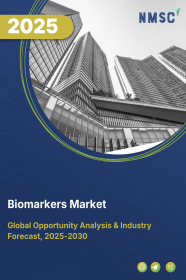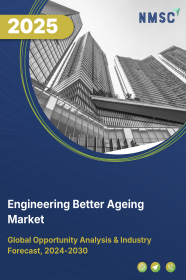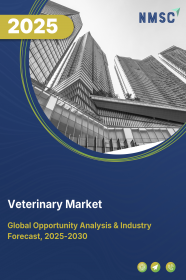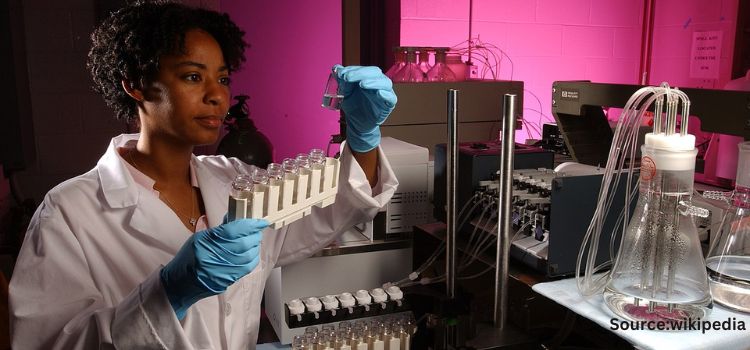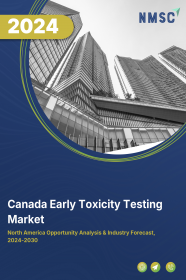
Canada Early Toxicity Testing Market by Technique (In Vivo, In Vitro, and In Silico), by Toxicity Endpoint (Genotoxicity, Dermal Toxicity, Skin Toxicity, Ocular Toxicity, Phototoxicity, and Others), by End User (Pharmaceutical Industry, Cosmetic Industry, Chemical Industry, Food Industry, and Others) – Opportunity Analysis and Industry Forecast, 2023-2030
Industry: Healthcare | Publish Date: 03-Dec-2024 | No of Pages: 93 | No. of Tables: 83 | No. of Figures: 32 | Format: PDF | Report Code : HC729
US Tariff Impact on Canada Early Toxicity Testing Market
Trump Tariffs Are Reshaping Global Business
Market Definition
The Canada Early Toxicity Testing Market was valued at USD 55.37 million in 2022, and is predicted to reach USD 124.39 million by 2030, with a CAGR of 9.15% from 2023 to 2030.
Early toxicity testing is a pivotal procedure that involves assessing the potential harmful effects or toxicity of drugs, chemicals, or substances at their initial stages of development. This comprehensive evaluation is primarily conducted through in vitro studies or animal models before embarking on human trials.
The overarching goal of early toxicity testing is to swiftly detect any safety concerns associated with a substance, enabling well-informed decisions regarding its viability for further development and subsequent testing phases.
By undertaking early toxicity testing, the risks of adverse effects in both human subjects and animals during clinical trials are effectively minimized. This concurrent reduction in expenses and time invested in the broader drug development process is particularly noteworthy.
This intricate process encompasses a diverse array of examinations and assays, ranging from scrutinizing cell viability and assessing genotoxicity to investigating pharmacokinetics.
The specific methodologies employed are contingent upon the inherent properties of the substance under investigation and its intended applications. Positioned as an indispensable phase within the comprehensive drug development journey, early toxicity testing serves as an unequivocal guardian of safety and efficacy for emerging drugs and other substances.
This critical assessment occurs before these entities secure regulatory approval for human usage, aligning with the overarching commitment to safeguarding public health and well-being.
Growing Biotechnology and Pharmaceutical Sectors Drive Demand for Early Toxicity Testing in Canada
With rise in biotechnology and pharmaceutical industries in Canada, there is an increase in drug research and development activities. This is leading to a higher demand for early toxicity testing services to support development of new vaccines and medication products.
For instance, according to a report published by the Government of Canada, Canada is the 9th largest pharmaceutical market in the world with over 1,100 small and medium-sized enterprises and USD 1.2 billion invested in R&D in 2019.
Government-Backed Healthcare and Pharmaceutical Initiatives Energize Market Growth in Canada
The rise in initiatives of governments for development of healthcare and pharmaceutical industry in the country further propels growth of the market.
For instance, according to a recent report by the government of Canada, the country is investing to develop and manufacture critical medicines, building new facilities, and upgrading existing ones to produce critical medicines, such as vaccines and treatments for illnesses such as cancer and heart diseases and reduce reliance on foreign imports and enhance its ability to respond to public health emergencies.
Impact of Stringent Regulations on Early Toxicity Testing Market and Drug Development in Canada
However, stringent regulations set by regulatory bodies such as the US FDA and the EMA require extensive and rigorous testing for drug development and safety, which can be time-consuming and expensive and restrain growth of the market.
The complexity and cost of complying with these regulations can pose a significant challenge for small and medium-sized companies that may not have the resources to carry out extensive testing.
As a result, some companies may choose to delay or abandon drug development projects, which can limit demand for early toxicity testing services. Moreover, stringent regulations can also result in a lengthy approval process for new drugs, further delaying the time it takes for drugs to reach the market. This, in turn, is expected to hamper growth of the market.
Technological Advancements in the field of Early Toxicity Testing Market in Canada
Introduction of new technologies such as in-vitro modelling using 3D cell culture is expected to provide new lucrative opportunities for the early toxicity testing market during the forecast period.
Use of 3D cell cultures can better mimic complexity of tissues and organs, providing more accurate and reliable results for toxicity testing. Traditional 2D cell culture models are limited in their ability to mimic complexity of human tissues and organs, often leading to inaccurate and unreliable results in toxicity testing.
However, use of 3D cell culture models can better mimic structural and functional complexity of tissues and organs, providing more accurate and reliable results for toxicity testing.
3D cell cultures allow growth and interaction of multiple cell types, creating a microenvironment that more closely resembles human tissues and organs. This can better predict toxic effects of drugs and chemicals in the human body, reducing the risk of adverse effects in clinical trials. Hence, such factors propel the market growth.
Competitive Landscape
The Canada Early Toxicity Testing industry includes several market players such as Inotiv Inc., Bio-Rad Laboratories Inc, Evotec A.G., Agilent Technologies Inc, Wuxi Apptec, Bruker, Perkinelmer Inc., Enzo Biochem Inc., Danaher Corporation, Eurofins Scientific SE, Charles River Laboratories International, Inc., Labcorp Drug Development., Promega Corporation, Insphero AG., and Thermo Fisher Scientific Inc.
Key Benefits
-
The Canada Early Toxicity Testing market report provides a quantitative analysis of the current market and estimations through 2023-2030 that assists in identifying the prevailing market opportunities to capitalize on.
-
The study comprises a deep dive analysis of the market trend including the current and future trends for depicting the prevalent investment pockets in the industry.
-
The information related to key drivers, restraints, and opportunities and their impact on the market is provided in the report.
-
The competitive analysis of the key players along with their market share in the Canada Early Toxicity Testing industry.
-
The SWOT analysis and Porter’s Five Forces model are elaborated in the study.
-
Value chain analysis in the market study provides a clear picture of the stakeholders’ roles.
Canada Early Toxicity Testing Market Key Segments
By Technique
-
In Vivo
-
In Vitro
-
Cell Culture
-
PCR
-
ELISA
-
Western Blotting
-
Protein Binding Assays
-
-
In Silico
By Toxicity Endpoint
-
Genotoxicity
-
Dermal Toxicity
-
Skin Toxicity
-
Ocular Toxicity
-
Phototoxicity
-
Others
By End User
-
Pharmaceutical Industry
-
Cosmetic Industry
-
Chemical Industry
-
Food Industry
-
Others
REPORT SCOPE AND SEGMENTATION:
|
Parameters |
Details |
|
Market Size in 2022 |
USD 55.37 Million |
|
Revenue Forecast in 2030 |
USD 124.39 Million |
|
Growth Rate |
CAGR of 9.15% from 2023 to 2030 |
|
Analysis Period |
2022–2030 |
|
Base Year Considered |
2022 |
|
Forecast Period |
2023–2030 |
|
Market Size Estimation |
Million (USD) |
|
Growth Factors |
Growing biotechnology and pharmaceutical sectors.
Demand for early toxicity testing by regulatory bodies. |
|
Companies Profiled |
15 |
|
Market Share |
Available for 15 companies |
|
Customization Scope |
Free customization (equivalent up to 80 working hours of analysts) after purchase. Addition or alteration to country, regional, and segment scope. |
|
Pricing and Purchase Options |
Avail customized purchase options to meet your exact research needs. |
Key Players
-
Inotiv Inc.
-
Bio-Rad Laboratories Inc
-
Evotec A.G.
-
Agilent Technologies Inc
-
Wuxi Apptec
-
Bruker
-
Perkinelmer Inc.
-
Enzo Biochem Inc.
-
Danaher Corporation
-
Eurofins Scientific SE
-
Charles River Laboratories International, Inc.
-
Labcorp Drug Development.
-
Promega Corporation
-
Insphero AG
-
Thermo Fisher Scientific Inc.

















 Speak to Our Analyst
Speak to Our Analyst



